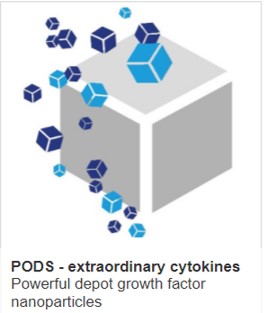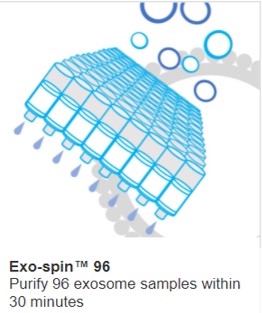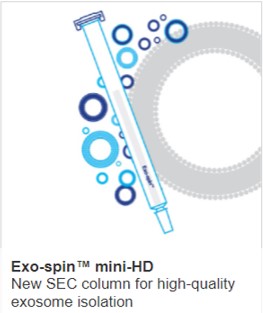Cytokines and Organ Rejection

Organ transplantation is a life-saving procedure for patients with end-stage organ failure. However, one of the major challenges in transplantation is the immune-mediated rejection of the transplanted organ by the recipient's immune system. Cytokines, a group of small proteins secreted by immune cells, play a crucial role in the immune response and are involved in the process of organ rejection.
Cytokines are signaling molecules that regulate various aspects of the immune response, including cell proliferation, differentiation, and activation. They are produced by a variety of immune cells, such as T cells, B cells, macrophages, and dendritic cells, and can act in an autocrine, paracrine, or endocrine manner. Cytokines can be classified into several families, including interleukins (ILs), interferons (IFNs), tumor necrosis factors (TNFs), and chemokines, among others.
Organ rejection can be described as hyperacute, acute, or chronic rejection. Hyperacute rejection occurs within minutes to hours after transplantation and is mediated by pre-existing antibodies against the donor organ. Acute rejection occurs within days to weeks after transplantation and is primarily mediated by T cells. Chronic rejection occurs months to years after transplantation and is characterized by progressive fibrosis and vascular changes in the transplanted organ.
Cytokines in Hyperacute Rejection
Hyperacute rejection is primarily mediated by the activation of the complement system, which leads to the formation of the membrane attack complex (MAC) and subsequent lysis of the donor endothelial cells. Although cytokines are not directly involved in the initiation of hyperacute rejection, they can contribute to the amplification of the immune response. For example, TNF-α, a pro-inflammatory cytokine, can increase the expression of adhesion molecules on endothelial cells, promoting the recruitment of immune cells to the site of inflammation. Additionally, cytokines such as IL-1 and IL-6 can enhance the production of antibodies by B cells, further exacerbating the immune response.
Cytokines in Acute Rejection
Acute rejection is primarily mediated by T cells, which recognize foreign antigens presented by the donor's major histocompatibility complex (MHC) molecules. Upon activation, T cells secrete various cytokines that orchestrate the immune response against the transplanted organ. For example, T helper 1 (Th1) cells produce pro-inflammatory cytokines such as IFN-γ, TNF-α, and IL-2, which promote the activation and differentiation of cytotoxic T cells and macrophages, leading to tissue damage and organ rejection. On the other hand, T helper 2 (Th2) cells produce anti-inflammatory cytokines such as IL-4, IL-5, and IL-10, which can suppress the Th1 response and promote the activation of B cells and eosinophils, contributing to antibody-mediated rejection.
Cytokines in Chronic Rejection
Chronic rejection is characterized by progressive fibrosis and vascular changes in the transplanted organ, leading to its eventual failure. Although the exact mechanisms underlying chronic rejection are not fully understood, cytokines are thought to play a critical role in the process. For example, transforming growth factor-β (TGF-β), a cytokine with potent fibrogenic properties, has been implicated in the development of fibrosis in chronic rejection. Additionally, pro-inflammatory cytokines such as IFN-γ and TNF-α can promote the activation of macrophages and the production of reactive oxygen species (ROS), leading to tissue damage and the activation of fibroblasts.
Therapeutic Targeting of Cytokines in Organ Transplantation
Given the crucial role of cytokines in organ rejection, several therapeutic strategies have been developed to target cytokines and their signaling pathways to improve transplant outcomes. Some of these strategies include:
Neutralizing antibodies: Monoclonal antibodies that specifically bind to and neutralize cytokines can be used to inhibit their biological activity. For example, basiliximab, a monoclonal antibody against the IL-2 receptor, has been shown to reduce the incidence of acute rejection in kidney transplant recipients.
Cytokine receptor antagonists: Small molecules or proteins that bind to cytokine receptors and inhibit their signaling can be used to modulate the immune response. For example, etanercept, a soluble TNF receptor fusion protein, primarily used to treat patients with rheumatoid arthritis, has also shown potential in preventing acute rejection in animal models of transplantation.
Small molecule inhibitors: Small molecules that target intracellular signaling pathways downstream of cytokine receptors can be used to inhibit cytokine-mediated immune responses. For example, Janus kinase (JAK) inhibitors, which block the signaling of multiple cytokines, have been shown to prevent acute rejection in animal models of transplantation and are currently being evaluated in clinical trials.
Gene therapy: The use of gene therapy to modulate the expression of cytokines or their receptors in the transplanted organ has shown promise in preclinical studies. For example, the overexpression of IL-10, an anti-inflammatory cytokine, in the donor organ has been shown to prolong graft survival in animal models of transplantation.
Cell-based therapies: The adoptive transfer of regulatory T cells (Tregs), which produce anti-inflammatory cytokines such as IL-10 and TGF-β, has been shown to promote transplant tolerance in animal models and is currently being evaluated in clinical trials (14).
Targeting cytokines and their signaling pathways represents a promising therapeutic strategy to improve transplant outcomes. Further research is needed to optimize these approaches and to develop novel strategies to modulate the cytokine network in transplantation.
IMAGE: Transplant glomerulaopathy by Nephron



